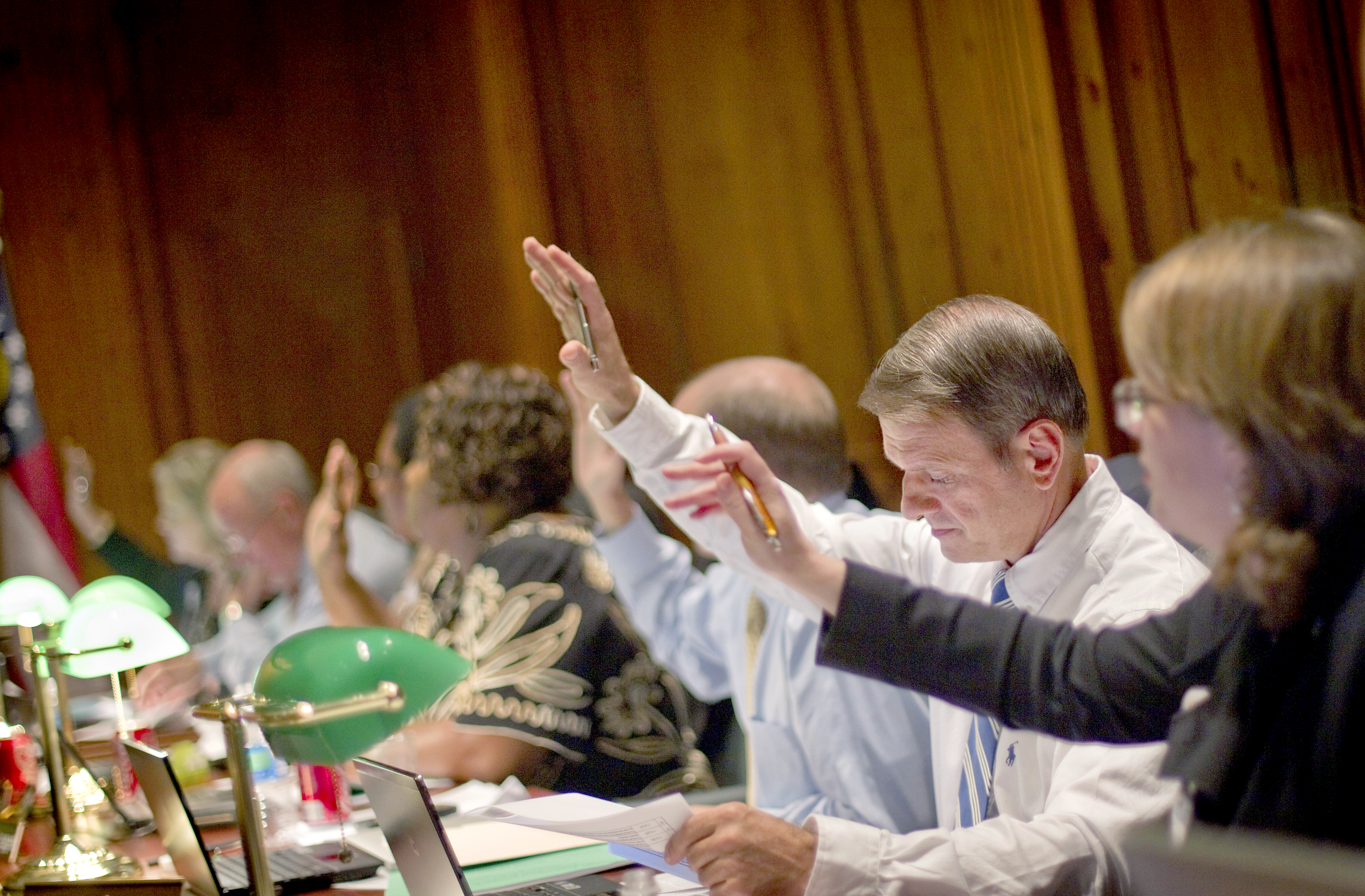ATLANTA - A state commission voted Thursday to yank the teaching licenses of eight teachers and three school administrators in the Atlanta Public Schools, imposing the first sanctions in the nation's largest-ever school cheating scandal.
The Georgia Professional Standards Commission ruled on the first set of cases from a state probe that revealed widespread cheating in nearly half of the district's 100 schools dating as far back as 2001. The commission is expected to take up the rest of the nearly 180 Atlanta cases by the end of the year, though the appeal process could mean some cases won't be settled for years.
The eight teachers sanctioned by the commission can reapply for their licenses in two years, while the administrators' revocations are permanent. All rulings can be appealed up through state administrative and Fulton County Superior Courts.
"These are 11 cases we felt like had compelling evidence to give to the commission," said Kelly Henson, head of the licensing agency. "It's the same message we want to send no matter the ethics violation. Education is the most honorable profession, and part of our job is to protect not only the students, but the integrity of the institution."
The commission did not release the names of the educators sanctioned because they have 30 days to appeal the ruling.
The educators named by state investigators could also face criminal charges - investigations by the Fulton and DeKalb county district attorneys are ongoing. DeKalb County District Attorney Robert James said he hopes to have completed his investigation by January.
"We're working and working very aggressively to some type of resolution," James said Thursday.
A spokeswoman for Fulton County District Attorney Paul Howard declined to give a timeline for the ongoing investigation, though it could take much longer than DeKalb County because Fulton is where the majority of the schools in the cheating report are located.
The state probe also led to an ongoing investigation by the U.S. Department of Education's Office of Inspector General and the Georgia Department of Education, which says the district could owe thousands in federal money for low-income schools that have high test scores.
State investigators found that former Superintendent Beverly Hall, who retired just days before the probe was released, either knew or should have known about the cheating. Hall has denied the allegations and apologized for not doing more to prevent such behavior.
Hall and a handful of her top deputies have been reported to the licensing commission and could face sanctions, which range from a warning up to permanent revocation.
And the district faces losing its accreditation from the Southern Association of Colleges and Schools over issues with its school board. The national agency placed the district on probation in January and is expected to rule in coming weeks on whether to revoke accreditation entirely.
Once that decision is announced, the state Board of Education will hold a hearing on whether to recommend to Gov. Nathan Deal that he remove members of the Atlanta school board. A state law that took effect July 1 permits the governor to remove members of local school boards if their districts are in danger of losing accreditation.
The hearing has been delayed until Dec. 5 to give SACS time to make its decision.
The testing problems in Atlanta schools first came to light after The Atlanta Journal-Constitution reported that some scores were statistically improbable. The state released audits of test results after the newspaper published its analysis.
Investigators said that educators gave answers to students or changed answers on tests after students had turned them in. Teachers who tried to report the cheating were retaliated against and punished, creating a culture of "fear and intimidation" in the district, investigators found.

